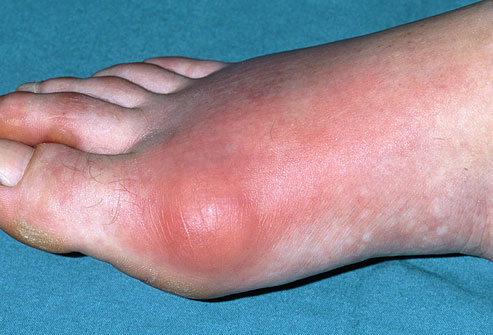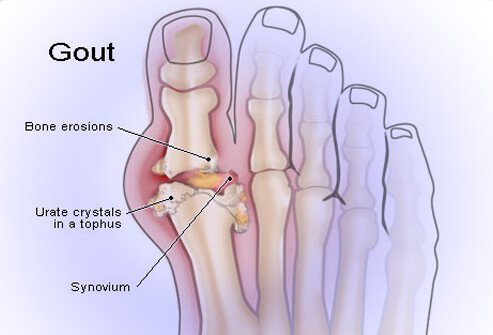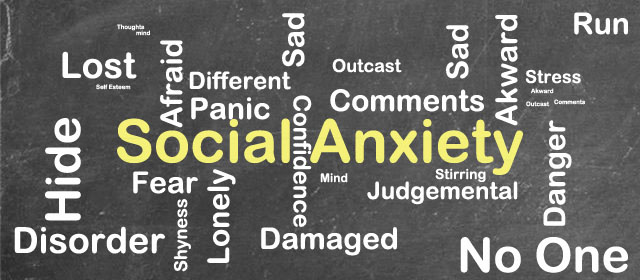Gout predominantly affects men and the disease is most likely to occur at a more advanced age. Men with ages over 50 usually develop forms of gout.
The disease can be corrected through an appropriate gout treatment, there is no specific cure for it. Many medicines prescribed for gout usually control its symptoms, rather than the actual causes.
Gout usually involves intense pain of the joints. Pain episodes tend to become more intense during the night and sometimes people with gout have trouble sleeping. Common medicines prescribed in gout treatments are non-steroidal anti-inflammatory drugs (indomethacin, ketoprofen, naproxen, ibuprofen, and diclofenac).
Many symptoms of gout can be ameliorated by following an appropriate gout treatment. When suffering from chronic forms of gout the symptoms reappear after certain periods of time and ongoing treatment is necessary.
Gout predominantly affects men and the disease is most likely to occur at a more advanced age. Men with ages over 50 usually develop forms of gout. There are many factors that facilitate the development of gout, but the actual cause of the disease seems to be the body’s excessive secretion of a substance called uric acid. The disease can be corrected through an appropriate gout treatment, there is no specific cure for it. Due to this fact, Colchicine is only administered to patients suffering from acute gout or to those who don’t respond well to gout treatment with non-steroidal anti-inflammatory drugs.
Corticosteroids are also used in some gout treatments. They quickly relief the pain and they can usually be injected directly into the affected joint. They are used only in extreme cases, due to their multiple side effects.
Proper diet and drinking larger quantities of water are a natural way of getting rid of the surplus of uric acid from the body, some medicines can also help to normalize the levels of the substance. Such medicines are usually used in chronic gout treatment.
Another substance used in gout treatment is Colchicine. It considerably reduces pain and discomfort of the regions affected by gout, it also has a lot of side effects. Due to this fact, Colchicine is only administered to patients suffering from acute gout or to those who don’t respond well to gout treatment with non-steroidal anti-inflammatory drugs.
There are many factors that facilitate the development of gout, but the actual cause of the disease seems to be the body’s excessive secretion of a substance called uric acid. Gout mainly affects joints, especially those of the lower body limbs. Gout causes inflammation, swelling and intense pain of the affected areas.







